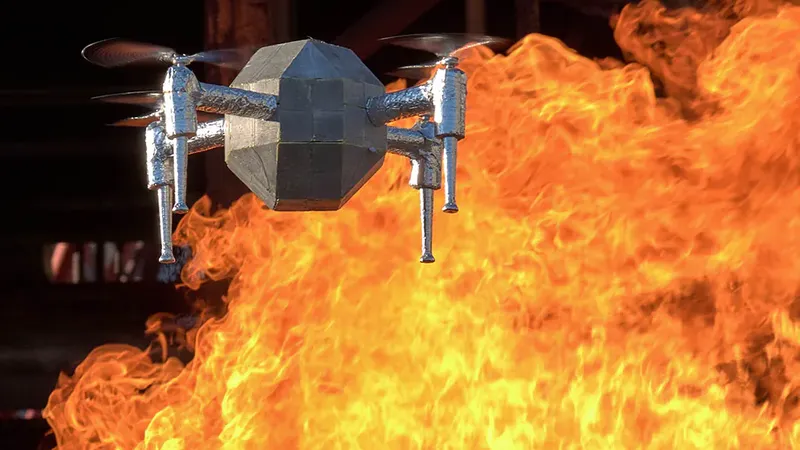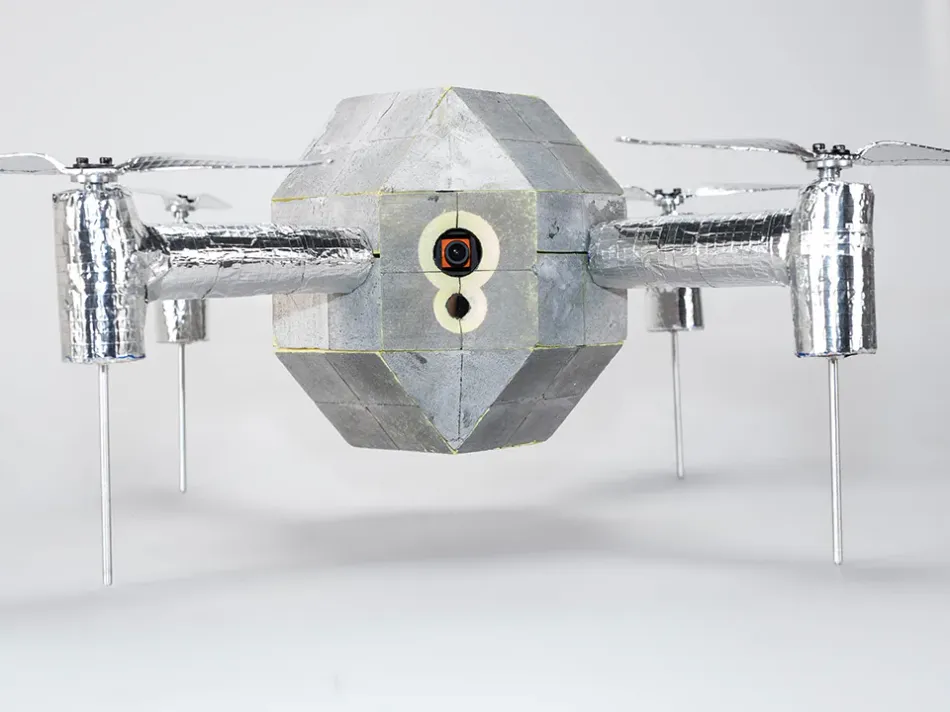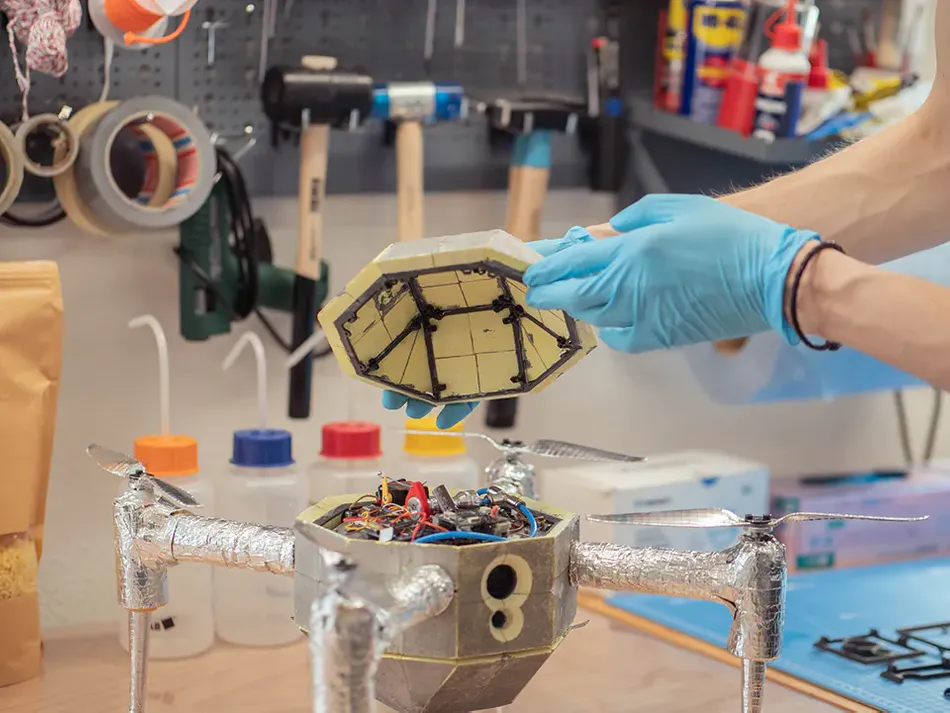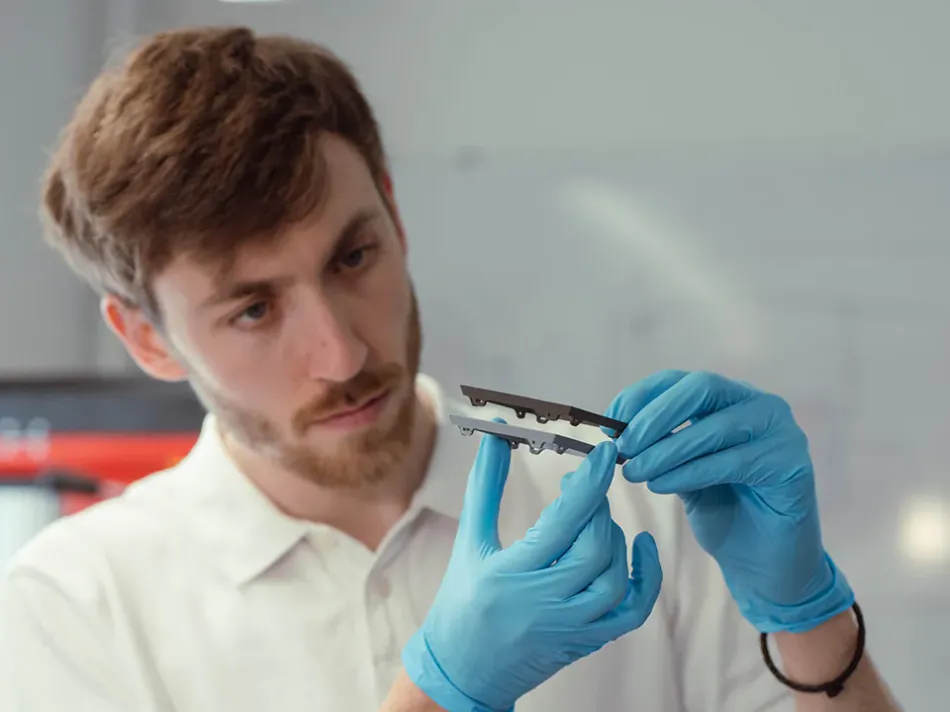Baptism of fire for Sintratec SLS 3D parts
The Laboratory of Sustainability Robotics of the Swiss Empa institute develops a special drone for firefighting operations. Lightweight, stable and temperature resistant parts manufactured with SLS 3D printing is the key to success.

Equipped with an infrared and a RGB camera, the fire drone is sending video data directly from the danger zone.
This article was first published on
sintratec.comMaterials for a sustainable future
As an interdisciplinary research institute, Empa sets standards in the field of sustainable and resilient solutions. Its mission is to turn away from a throw-away society and towards a circular economy – to ensure a greener future for our planet. The Laboratory of Sustainability Robotics, a department of Empa, focuses in part on the development of flying robot platforms.
Fire operations with drone technology

"Every day, firefighters risk their lives going into unknown environment", says David Häusermann. The research engineer and his team spent around six months developing, constructing, and testing a fire drone. The drone is intended as reconnaissance equipment from a safe distance, literally providing a picture of the danger zone – by means of an infrared sensor as well as a conventional RGB camera. In this way, risks can be minimized and efficiency increased during firefighting operations.

Tolerating extreme temperatures

Usually, drones are not designed to function in extreme temperatures. The used materials tend to melt or even burn. "For the prototype of the fire drone we had to search for materials that could withstand high temperatures up to 200°C", David emphasizes. Thus, in cooperation with materials scientists at Empa, a polyimide aerogel heat shield was developed to effectively protect the drone’s internal electronics.
Too hot for FDM 3D printing

Additive manufacturing technologies such as FDM (fused deposition modeling) were used during the development phase as they offer great design freedom. Later in the project, the FDM components had to be replaced by laser-sintered PA12 elements due to their improved accuracy, material quality and temperature resistance. Compared to the FDM technology, SLS offers another benefit of eliminating the need for support structures during printing.
SLS parts prove themselves
The 3D printed parts sponsored by Sintratec were used for the mounting frames of the aerogel shell, fixing points for electronic components, clamps for the rotor arms, and the gearbox housings. "The parts Sintratec provided to us fulfilled all of our project requirements and performed as expected when tested in real-life conditions," explains David enthusiastically. For the engineer it is clear: «the SLS technology and its excellent material properties are perfect for drone construction – high quality, robust and heat resistant parts.»

